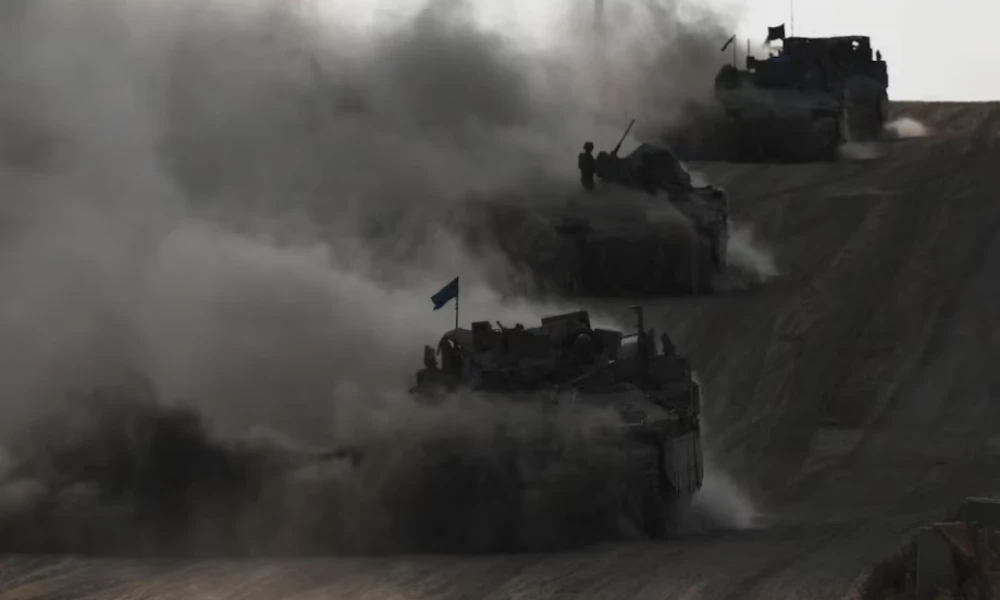CAIRO: Israeli forces have seized control of a buffer zone along the Gaza Strip’s border with Egypt, the country’s military announced on Wednesday, effectively giving Israel authority over Gaza’s entire land border.
Despite an International Court of Justice order to cease attacks on Rafah, Israel continued its deadly raids on the southern Gaza city, where nearly half of Gaza’s 2.3 million people had sought refuge.
In a televised briefing, chief military spokesperson Daniel Hagari stated that Israeli forces had achieved “operational” control over the “Philadelphi Corridor,” a 14 km (9 mile) stretch along Gaza’s border with Egypt. Hagari explained that this corridor was a crucial smuggling route for Hamas, the armed Palestinian group governing the blockaded territory.
Hagari did not elaborate on what “operational” control entailed, but an Israeli military official previously indicated that Israeli troops were present along parts of the corridor. This border with Egypt was the only land border of the Gaza Strip not directly controlled by Israel until now.
On Wednesday, Israeli tanks conducted raids in Rafah, advancing into the city center for the first time on Tuesday despite the UN court’s order to halt the assault. The World Court’s ruling demanded that Israel explain how it would ensure the safety and provision of necessities for evacuees from Rafah. It also called for Hamas to unconditionally release hostages taken from Israel on October 7.
Residents of Rafah reported that Israeli tanks had penetrated Tel Al-Sultan in the west and Yibna and Shaboura in the center before retreating towards the buffer zone on the Egyptian border. Haitham al Hams, the deputy director of ambulance and emergency services in Rafah, reported distress calls from displaced residents in Tel Al-Sultan who were targeted by drones while moving to safer areas.
Palestinian health officials reported 19 civilian casualties from Israeli airstrikes and shelling across Gaza. Israel accuses Hamas of using civilians as shields, a claim denied by Hamas.
Health Minister Majed Abu Raman called on Washington to pressure Israel to open the Rafah crossing for aid, noting the urgent need for medical supplies as patients in Gaza were dying due to lack of treatment.
Israel’s National Security Adviser Tzachi Hanegbi indicated that fighting in Gaza would continue throughout 2024, emphasizing that Israel aims to end Hamas rule in Gaza and prevent attacks on Israel.
U.S. Secretary of State Antony Blinken urged Israel to develop a post-war plan for Gaza to avoid lawlessness and a potential Hamas resurgence. The U.S., Israel’s closest ally, reiterated its opposition to a major ground offensive in Rafah but stated it did not believe such an operation was currently underway.
The Gaza Health Ministry reported that over 36,000 Palestinians have been killed in the Israeli offensive.


